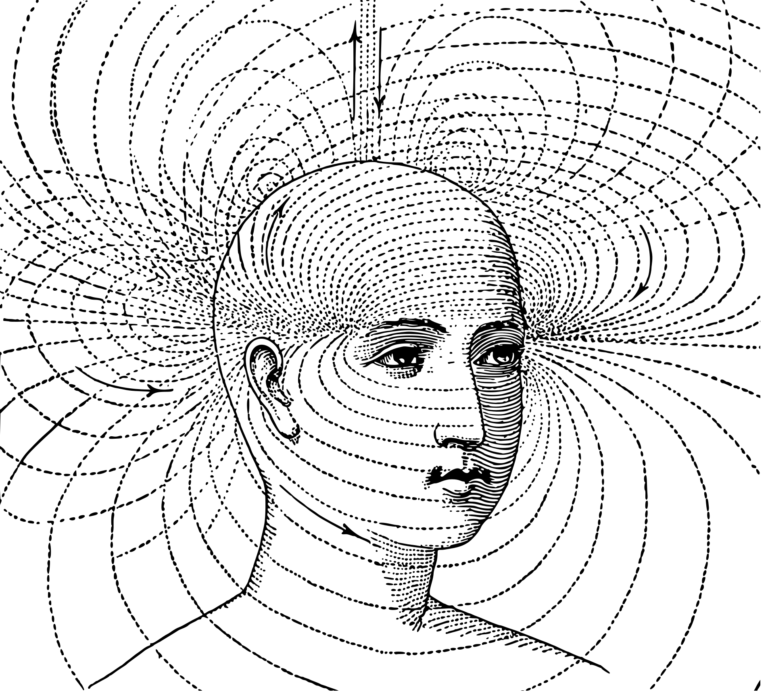4 Simple steps to lasting habits: James Clear's Habit Loop
Did you ever wonder, what in the world is going on in your mind, when you keep doing things you actually want to stop? Like procrastination, porn, eating sweets, checking social media and the rest of its relatives? Today, I brought your brain’s agenda with me. With that you will finally get acquainted to the mechanism behind your habits. Exciting? Truly. Difficult? Not at all! Let’s take a dive!

The game is simple: if you have ever played monopoly, you do exactly the same with your brains agenda: You own it. As many parts as possible. Why is that useful? Because then you are in full control of the game. The more streets you know and own, the better it is for your odds to win the game. The good news? You actually just have to take care of fours streets: The Cue. The Craving. The Response. The Reward. Understanding how they work is an advantage. Owning them is the key for your victory. At the end of the day you won’t have to worry anymore if the dices roll to your favor. Step one: Getting acquainted with each Street. Let’s take a quick look at the characteristics of the habit loop.
1. The cue
Did you ever walk down a street and smell the heavenly scent of freshly baked bread or pastry? May I introduce: the cue. A cue is a trigger that evokes a certain type of emotion. This trigger tells you to get active, since you anticipate a reward: the pastry. Scientifically speaking, your brain releases dopamine right at the moment you smell the bakery’s goods. Each one of us has different triggers, which will release dopamine. James Clear chose the sound of slot machines in the casino. For some people, it’s highly dangerous to hear them. For others it’s just background noise.

2. The Craving
Triggered by the cue, the craving is the actual feeling of something’s missing. It’s an itch, which you want to get rid’ of. Like the feeling of being super thirsty or hungry. This mechanism ensures you to take action towards the reward. But be careful: When a mosquito bites you, and you scratch the itch, it’s only getting worse. Only because something in or on your body is itching, it doesn’t mean you have to scratch it. Yes, it takes willpower to reject the itch, still it’s your choice to do so.
3. The Response
As third step of the loop, you finally consciously become active. The response is the actual habit you execute. Everything before happened unconsciously and out of your control. This is good and bad news at the same time. For the gambler it’s the pull of the slot machine’s arm. For a smoker the lighting of his cigarette and the inhale of the smoke. For the athlete it’s track running, or the pull of the weights.

4. The Reward
Satisfaction. That’s all there is. The relieve of the itch, whatever reason it was. You got an itch for knowledge? Fine, your brain rewards you with dopamine if you obtained what you wanted to know. You just escaped the feeling why you procrastinated? Great! Your brain rewards you with dopamine! You just had a heavy argument with your spouse and just took your sip of beer to numb the feeling? Awesome, here’s your reward. Your brain is a reward detector and always on the venture to find new reasons to provide incentives. Biologically seen, this function serves well to ensure your body’s survival. However, humans became too good in pushing this button. We’re out of control.
Owning the Streets
Now it’s your turn. I kept the best part for the end of the article: Since you finally know the agenda of your brain, you can actively influence what habit should stick. James Clear made it easy for us to establish new habits. And the process is always the same:
1. The Cue – Make it obvious – How can I make it obvious?
2. The Craving – Make it attractive – How can I make it attractive?
3. The Response – Make it easy – How can I make it easy?
4. The Reward – Make it satisfying – How can I make it satisfying?

You want to make reading your new habit?
1. Make it obvious
Engineer your environment, so that it fosters your desire to read. By sprinkling triggers all over your life, you do exactly that.
-> Use the 5 minute rule everyday in the morning. Right after brushing your teeth where you just read for five minutes afterwards.
-> Put the book next to your bed
-> Sprinkle quotes into your life, why reading is great. Like little post its on the mirror, the door, your desk, the balcony, your car, next to the toilet, or on your computer. You can even buy posters.
-> Go to the library on a regular base, even if you don’t want to read. You can get done work, write your new nutrition plan, plan your next holiday, read the newspaper, enjoy the air-conditioning, meet with friends – you name it.
-> Connect with people who read by themselves. Due the exposure of individuals who read a lot by themselves, you implement more triggers into your life.
2. Make it attractive
Fortunately, there are unlimited opportunities to make things attractive in our life. How do we do it? Easy game! As mentioned above, the brain releases dopamine solely when a reward is expected. From that baseline we create attraction:
–> Stop reading, when you are in excitement, not when you finished the chapter. Screenwriters are masters in making you stick to a series. If you have ever watched Games of Thrones or Suits you know exactly what I mean. Right before an Episode ends, they create a situation that makes the viewer want to come back for the next episode.
–> Transform your sentence structure. The language of the unlucky consists of unlucky vocabulary. Words have such a powerful impact, that we often forget to think about what they actually do to us. Instead of saying “I have to…” say “I am about to” or “I will…”. With that you relieve the pressure of the words must and have. Yes, very often we are not in the mood of “I will”, but by solely speaking it out, you create traction.
–> Transform your vocabulary. James Clear even goes as far to turn simple things upside down. Simply by saying “I will obtain knowledge about how to talk to people” instead of “I will read a book” you will fuel motivation. Quite frankly. not only will you learn to create fire out of nowhere, no you also practice using compelling and convincing speech. Time to unleash your creativity.

3. Make it easy
4. Make it satisfying
1. By using biological factors, which we are at its mercy anyway

Creating purpose
Fyodor Dostoyevsky
